Beach's Classic Alpine Adventure
I began my motorcycle riding life in the Rocky Mountains of Colorado, nearly 35 years ago. I believe it is fair to say that I cut my motorcycling teeth on mountain passes, and in the ensuing years I managed to ride (I believe) every single paved pass in the Rockies at least once, including those in Canada. During this same time I also managed to ride most of the best passes in the Sierras, Adirondacks, the Great Smokies and several other, smaller mountain ranges here in the US, plus some of those in Africa, Asia and South America. Yet, somehow, the legendary motorcycle Nirvana of the Alps eluded me. Three times in 15 years I made plans to ride through the Alps, and three times something happened in either my personal life or on the national scene (like 9/11), to force the cancellation of my trips.
At 56 years old, I began to think that perhaps it just wasn't meant to be--and then the call came from Rob Beach.
A quick check showed that though I didn't have quite enough frequent flier miles to make the trip, all of my miles plus another $600 would get me to Munich. And an e-mail to BMW's press department was responded to almost immediately. They would be happy to loan me a "press bike" from their Munich fleet for the trip. Everything looked good, and then got even better when I found that my old friend and riding partner, Marc Souliere from Canada, was booked for the same trip, so we could share motel rooms and keep costs down even more.
"Motorcycle Journeys Through the Alps," which is considered by many to be the bible of Alpine motorcycle touring.
Robert and Elizabeth Beach have been running organized tours of the Alps for over 30 years, starting in 1972, and to date have led nearly 5,000 riders on more than 300 Alpine adventures. These days the senior Beachs are semi-retired, but the Alpine tours are still led by their son, Rob Beach, who literally grew up (though some might argue that Rob never quite really "grew up") riding these fabled mountains with his parents. With that kind of history behind the company, I figured I could hardly go wrong.
As Rob himself put it: "Vacation time is your personal time--time for attitude adjustment and time to relax and reorient yourself with the ideas and things which are important in your life. Over the years, we have found that it takes most people a week to forget the pressures of work, to adjust to the local time, and to understand the ebb and flow of traffic and the road systems of Europe. With only a seven-day vacation, one is returning home just as he begins to find himself in sync. Therefore, all of our tours are two weeks or longer so that our participants can really enjoy the experience, unfettered by internal stress or outside pressures."
Not only that, but the level of camaraderie and personal interaction with other group members increased dramatically. The nightly dinners evolved from polite conversation and "early to bed to be ready for tomorrow's ride" affairs, into loud, backslapping, teasing and laughing evenings that no one wanted to see end. Everyone became much more adventuresome, ready and willing to strike out on their own to find interesting roads during the day, or to wander the quaint little Swiss villages at night. It was a remarkable transformation, and I had to admit that Rob was right--to have the tour end just as this was all really getting into high gear would have been a shame.
"Should your interests lie in discovery, in new vistas, in that little road heading off to the west, and in adventure, then the tours conducted by Beach's Motorcycle Adventures are what you have been searching for. Many of our most fervent supporters are riders who never considered a "group tour" prior to joining us. The constraints of group riding and group rules and regulations run counter to their philosophy of motorcycling. "Like these individuals, our company philosophy runs counter to others. We don't try to be everything to everyone; we make no attempt to conduct tours to every corner of the globe; we don't have ten thousand customers annually; and we don't structure our tours for the masses."
Imagine that. A tour company that actually advertises that if you like highly-structured tours, or riding in a tight-knit group, then you really should consider some other touring company!
In a nutshell, I learned to really appreciate the Beach philosophy of "guiding" a tour by offering advice, suggestions and maps, rather than by being "babysitters" that lead us around by our noses. That way, we could stop when we wanted, for however long we wanted, eat lunch at those places that appealed to us, grab the photo opportunities we liked, etc., etc.
Add to that the fact that our North American passes were almost all designed and built for modern motorized traffic. That is to say, they are wide, unobstructed and, for the most part, devoid of curves that would be challenging even for large, commercial trucks. In Europe, many of the roads across the Alps were originally built hundreds, if not thousands of years ago. Many were blazed by the Roman armies of conquest, and I remember one in particular that I rode, called "Sustenpass," was built by engineers of the Napoleonic Army, to carry supplies to the emperor's far-flung armies (hence the "Susten," for "sustenance."). These roads were built for footsoldiers and horse-drawn wagons, with a top speed of maybe two miles per hour, and without the benefit of bulldozers and such, so they pretty much follow the terrain. That means, in most case, lots and lots of extreme switchbacks, unbelievably steep grades, and very, very narrow roadways. Perfect for motorcycling.
Now, I like Wings as much as anyone, and have toured hundreds of thousands of miles on them, but they don't belong in the Alps--no way. More than once I saw these hapless Americans stuck in a severe, 180-degree switchback, on a 10% or better grade, either backing up two or three times to try to bend the big bike around the almost-impossible curve, or with the Wing laying on its side at the edge of the road. And even the larger sportbikes were having a pretty bad time of it on some of the smaller passes. I can't count the number of times I scooted by a CBR, FZ or GSX-R as its rider struggled at full steering lock and maximum lean angle. On these roads, big engines and big horsepower are nothing more than lots of extra dead weight. If you ride the kind of passes we did, your average speed at the end of the day is going to be no more than about 35mph (checked by several bikes with GPS systems), and shifting higher than second gear will be something you accomplish only rarely. Riding at about 20-25mph, in first or second gear, while leaned over as hard as you dare, a small, light bike with good bottom-end torque will run circles around a liter-class superbike every time.
So, how was the riding? In a word--awesome.
And even that over-used superlative comes up short in describing the experience. As noted earlier, I've done more than my fair share of mountain riding, all over the world, and I can state without the slightest reservation that if you haven't ridden the Alps, you have no concept of how incredibly exhilarating a motorcycle ride can really be. Some days we rode through five, six or seven passes in one day. Some were so twisty that we didn't see a straight section of road more than 50 feet long for over 100 miles at a time. Often, we found ourselves pulling to the side of the road after an hour or two just to let the adrenaline rush subside a bit. We would jump up and down, pound each other on the back, try to get our breathing and heart rates back to normal, shoot a few pictures, and then take off again. It is almost indescribable.
Sometimes, Marc and I planned an early arrival at the hotel so we could relax in the hot tub, take a quick swim, or do some shopping in the local village. Again, that's what's great about planning your own day instead of being locked into what the group is doing.
Though the "official" tour was planned as 13 days on the road, Marc and I arrived at the starting/stopping point in Munich three days early, to allow ourselves time to adjust to the 13-hour time difference, and to get acclimated with our surroundings. As it turned out, six others in our tour group did the same, and I highly recommend this practice. Though we didn't have our bikes yet, it was only a two-block walk to the nearest train station, where Munich's excellent, fast, clean and cheap mass transportation system would take us anywhere we wanted to go. By the time the tour actually started, we were well-rested, and were already starting to feel at home in Germany. And if you have any reservations about the language barrier, I'm here to tell you that you can put this entirely out of your mind. In our 17 days in four different countries, I can't recall a single time when not speaking the local language presented us with any difficulties at all. For the most part, Europeans all speak at least some English, and even when they didn't, a little bit of pointing or picture drawing sufficed. Usually, it was more amusing and fun than being a problem.
There's no way I can adequate describe how great an Alpine motorcycling adventure is. You really need to experience it yourself. All I can say is this: I've toured over 1.2 million miles on several continents and in over a dozen countries, and this tour was, without any doubt, the greatest of my lifetime.
You owe it to yourself to find out what I mean.
More information:
Beach's Motorcycle Adventures
2763 West River Parkway
Grand Island, NY 14072-2053
http://bma.buffnet.net/
More by Fred Rau



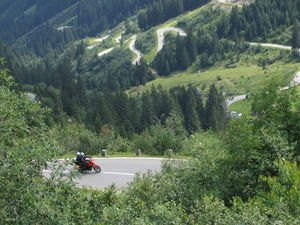












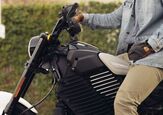
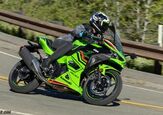
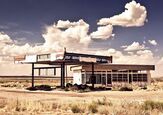
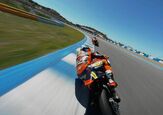
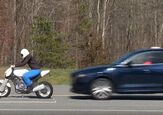
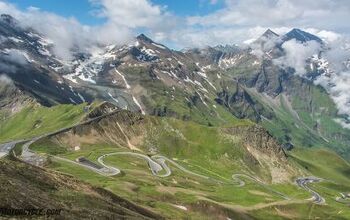


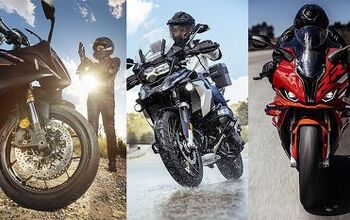
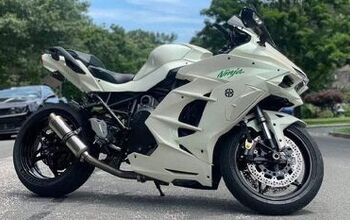
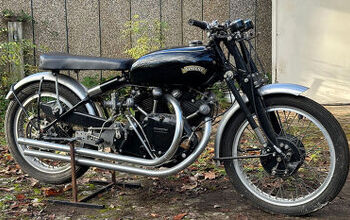
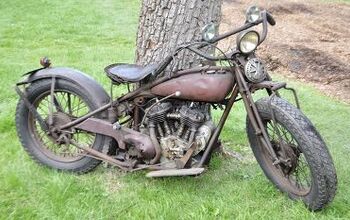
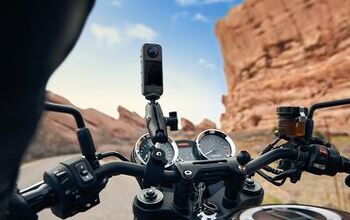
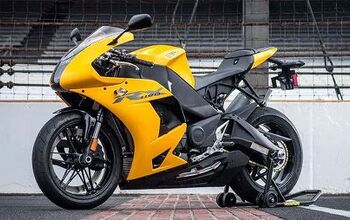
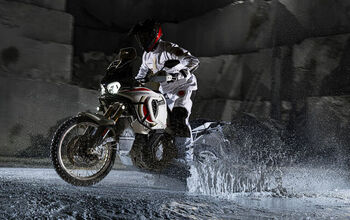
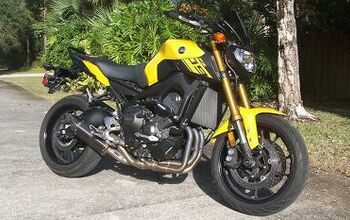
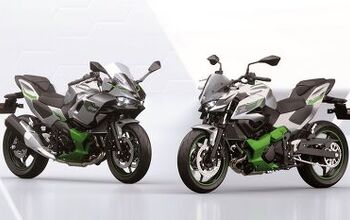
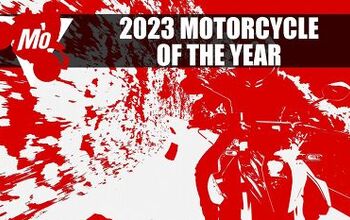
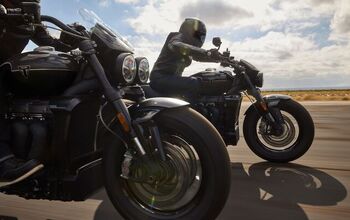
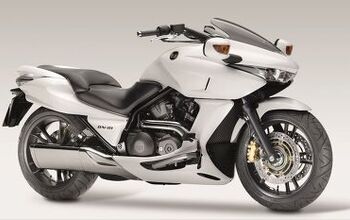
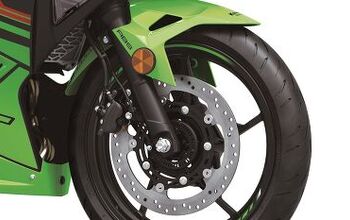

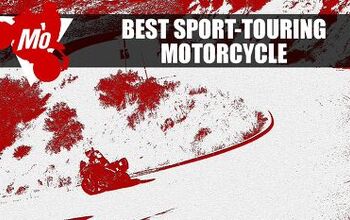
Comments
Join the conversation